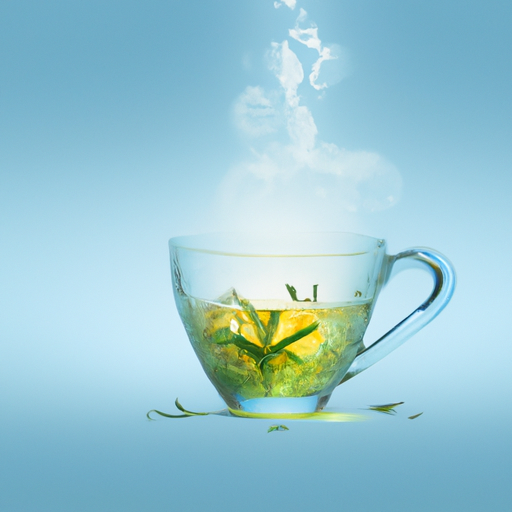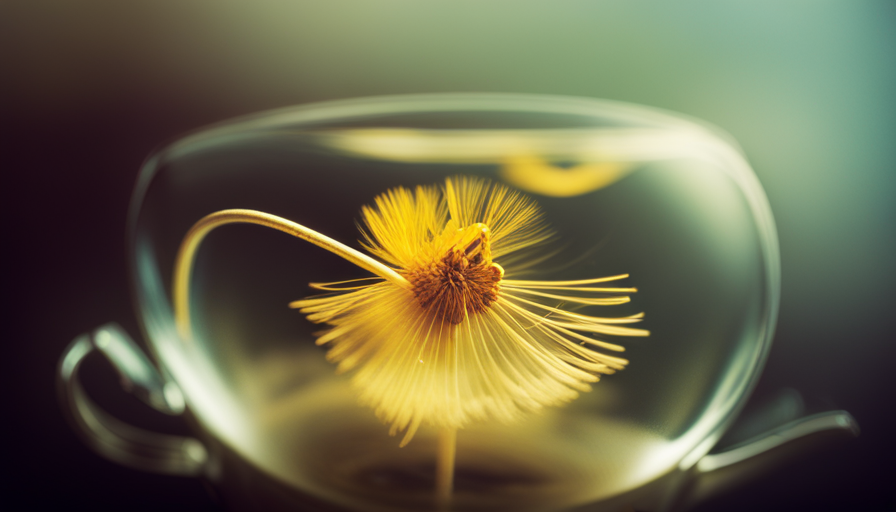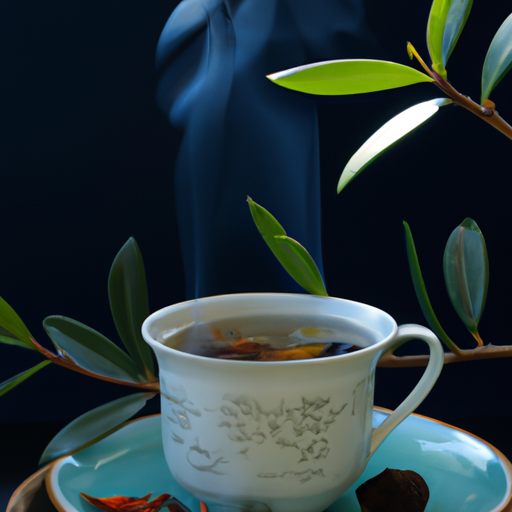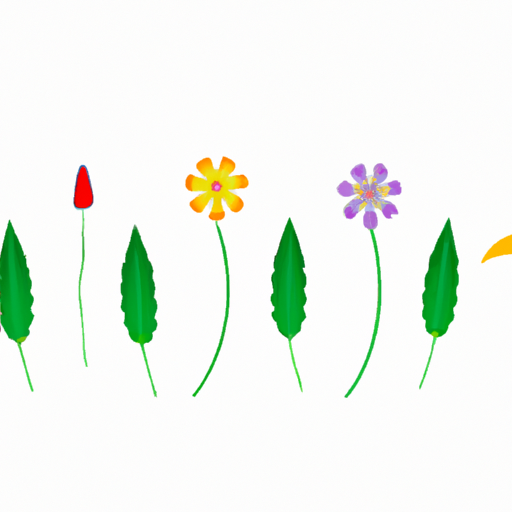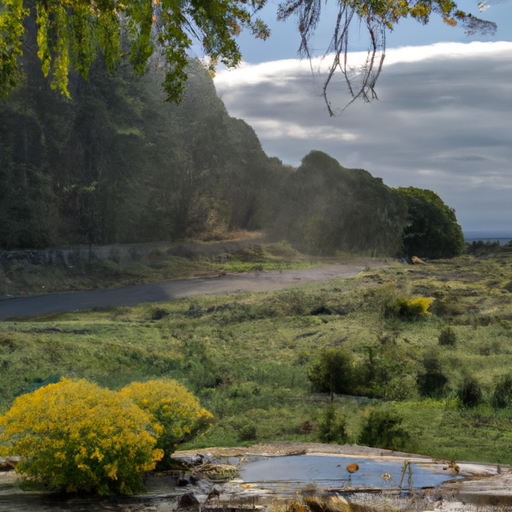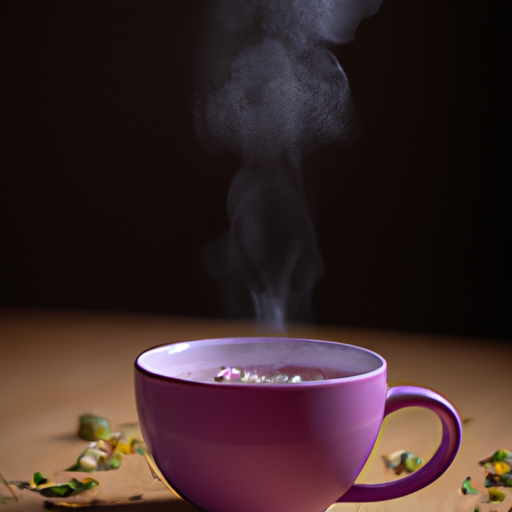Brewing a cup of herbal tea is akin to discovering a universe of flavors and aromas, an adventure that commences with just one sip. Submerging the tea leaves into steaming water releases a delightful bouquet of fragrances, surrounding me in a unique sensory journey.
But how long should one steep a cup of herbal tea? This is a question that often lingers in the minds of tea enthusiasts, as the perfect steeping time can make all the difference in taste and enjoyment.
In this article, we will delve into the art of steeping herbal tea, exploring the various types of herbal tea, the importance of steeping time, and how to adjust it to suit your personal preference. Join me as we uncover the secrets to creating the perfect cup of herbal tea, one steep at a time.
Key Takeaways
- Different types of herbal tea have different recommended steeping times for maximum flavor and benefits.
- Factors such as tea quality, water temperature, and tea-to-water ratio can affect steeping time.
- Steeping herbal tea for the recommended time ensures that the tea fully releases its medicinal properties and flavors.
- Herbal tea offers a wide range of health benefits, including calming properties, digestion aid, and immune system support.
Different Types of Herbal Tea
So, if you’re wondering about the different types of herbal tea, let me tell you, there’s a whole world of flavors and benefits waiting to be explored.
Herbal teas come in a wide variety of flavors, ranging from soothing chamomile to invigorating peppermint. Each type of herbal tea offers its own unique taste experience, allowing you to discover your personal favorites.
Not only do these teas taste great, but they also come with numerous health benefits. For example, chamomile tea is known for its calming effects, while ginger tea can aid digestion. With so many choices available, you can find a herbal tea that suits your taste preferences and supports your well-being.
Now, let’s delve into the importance of steeping time and how it can affect the flavor and benefits of your cup of herbal tea.
The Importance of Steeping Time
Make sure to allow enough time for the flavors of your soothing herbal infusion to fully develop and transport you to a state of blissful relaxation. Steeping time is crucial when it comes to brewing herbal tea, as it directly impacts the taste and health benefits of your cup. Different herbs require different steeping techniques to extract their unique flavors and medicinal properties. To help you enjoy the perfect cup of herbal tea, here is a table with recommended steeping times for some common herbal teas:
| Herbal Tea | Steeping Time |
|---|---|
| Chamomile | 5-7 minutes |
| Peppermint | 3-5 minutes |
| Ginger | 7-10 minutes |
| Rooibos | 5-7 minutes |
| Lavender | 4-6 minutes |
Proper steeping allows the herbs to release their aromatic oils and beneficial compounds, maximizing the health benefits of your tea. Now, let’s delve into the specific steeping time for common herbal teas.
Steeping Time for Common Herbal Teas
To fully savor the flavors and reap the benefits of your favorite herbal infusions, let the aromatic oils and compounds flourish by steeping them for the recommended times.
When it comes to chamomile tea, steeping for 5 to 10 minutes is ideal. This allows the delicate flowers to release their calming properties and create a soothing cup of tea.
For herbal teas like peppermint or ginger, a slightly longer steeping time of 10 to 15 minutes is recommended to extract their robust flavors and therapeutic benefits.
Hibiscus tea, known for its vibrant color and tangy taste, should be steeped for 5 to 7 minutes to achieve the perfect balance of tartness and sweetness.
Adjusting steeping time to personal preference can enhance the strength and flavor of your herbal tea, ensuring a customized and enjoyable experience.
Now, let’s explore how to do just that.
Adjusting Steeping Time to Personal Preference
Enhance your herbal infusion experience by customizing the steeping time to your personal preference. This allows the flavors to dance on your taste buds like a symphony of aromas. Adjusting the steeping time of herbal tea can significantly impact its flavor profile, giving you the opportunity to tailor it to your liking.
If you prefer a stronger, more robust taste, consider increasing the steeping time by a minute or two. On the other hand, if you enjoy a milder, more delicate brew, you can shorten the steeping time slightly. Experimenting with infusion duration will help you find the perfect balance that suits your taste buds. Just remember to adjust the time in small increments and taste the tea as you go. This way, you can fine-tune the flavor to your liking.
Now, let’s delve into the factors that can affect steeping time, allowing you to further refine your herbal tea experience.
Factors That Can Affect Steeping Time
When it comes to steeping a cup of herbal tea, there are several factors that can affect the steeping time. One important factor is the quality and freshness of the tea. The fresher the tea, the shorter the steeping time needed to achieve the desired flavor.
Another factor is the water temperature. Different teas require different water temperatures for optimal steeping, and adjusting the temperature can greatly affect the taste of the tea.
Lastly, the tea-to-water ratio plays a crucial role in determining the steeping time. The amount of tea leaves used in relation to the amount of water can impact the strength and flavor of the tea.
Tea Quality and Freshness
Discover the secret to enjoying the highest quality and freshest herbal tea by understanding the importance of steeping it for the perfect amount of time. When it comes to tea brewing techniques, the quality and freshness of the tea leaves play a crucial role in determining the ideal steeping time.
Here are three reasons why tea quality and freshness matter:
-
Enhanced Flavor: High-quality and fresh herbal tea leaves have a more vibrant and robust flavor profile, which can be fully extracted through proper steeping.
-
Increased Health Benefits: Fresh tea leaves contain higher levels of antioxidants and beneficial compounds, resulting in a more potent infusion that offers greater health benefits.
-
Consistent Results: Using fresh tea ensures a consistent taste and potency with each steep, allowing you to enjoy a consistently satisfying cup of herbal tea every time.
Understanding the importance of tea quality and freshness sets the foundation for the next step: determining the optimal water temperature for steeping your herbal tea.
Water Temperature
Get ready to uncover the secret to achieving the perfect infusion by mastering the art of controlling water temperature. When it comes to steeping herbal tea, the right water temperature is crucial in bringing out the optimal flavors and aromas.
Different types of herbal teas require different water temperatures for the best results. For delicate herbal teas, such as chamomile or peppermint, a lower water temperature of around 175°F works best. This helps to preserve the delicate flavors and prevent any bitterness.
On the other hand, robust herbal teas like hibiscus or ginger can handle a higher water temperature, around 200°F, which helps to extract their bold flavors.
By understanding the ideal water temperature for each type of herbal tea, you can ensure a perfect steep every time.
Now, let’s move on to the next important factor: the tea-to-water ratio.
Tea-to-Water Ratio
Mastering the art of controlling the tea-to-water ratio is essential for achieving a perfectly balanced and flavorful infusion. When it comes to steeping herbal tea, the choice between using teabags or loose leaf can greatly impact the outcome.
Teabags are convenient and easy to use, but they often contain lower quality tea leaves that are finely ground, resulting in a weaker flavor. On the other hand, loose leaf tea allows for a more robust and complex taste, as it consists of whole leaves that can expand fully during steeping.
To enhance the steeping process, using a tea infuser is highly recommended. This handy tool allows the tea leaves or herbs to unfurl and release their flavors more effectively, resulting in a more aromatic and satisfying cup of tea.
Now, let’s move on to some helpful tips for steeping herbal tea.
Tips for Steeping Herbal Tea
To fully extract the aromatic flavors and soothing properties of your herbal tea, let it steep for about 5-7 minutes. This allows the delicate leaves to dance and infuse their magic in the warm water. Steeping is the process of infusing herbs in hot water to extract their essence.
Herbal teas offer a wide range of health benefits, depending on the herbs used. For example, chamomile is known for its calming properties, while peppermint can help with digestion. Steeping for the recommended time ensures that the tea fully releases its medicinal properties and flavors.
Once steeped, strain the tea leaves and savor the moment as you take a sip of your perfect cup of herbal tea. Embrace its unique taste and the soothing sensations it brings to your senses.
Enjoying Your Perfect Cup of Herbal Tea
Once you’ve steeped your herbal tea to perfection, it’s time to sit back, relax, and savor the unique flavors and soothing sensations that it brings to your senses, creating a delightful and calming experience for you to enjoy.
Did you know that herbal teas have been consumed for centuries, with records dating back to ancient Egypt and China? Customizing flavors is one of the joys of herbal tea. You can experiment with different combinations of herbs, fruits, and spices to create your own personal blend. Whether you prefer a refreshing minty taste or a fruity infusion, the possibilities are endless.
Apart from the taste, herbal teas also offer numerous health benefits. They’re rich in antioxidants, which help boost your immune system and protect against diseases. Additionally, certain herbs like chamomile and lavender have calming properties that can aid in relaxation and sleep.
So, next time you indulge in a cup of herbal tea, take a moment to appreciate the flavors and embrace the wellness it brings.
Frequently Asked Questions
How do you choose the right type of herbal tea for your taste preferences?
When choosing herbal tea flavors, I consider my taste preferences and the benefits each tea offers. I enjoy experimenting with different blends and reading reviews. I also pay attention to the brewing techniques to ensure I get the perfect cup every time.
Can you reuse herbal tea leaves for multiple steepings?
Yes, herbal tea leaves can be reused for multiple steepings. The steeping time varies depending on the type of tea. For example, chamomile tea should be steeped for 5-7 minutes, while peppermint tea needs around 3-5 minutes.
What is the recommended water temperature for steeping herbal tea?
The recommended water temperature for steeping herbal tea is around 205°F (96°C). This helps extract the flavors and benefits from the herbs. Herbal tea should typically be steeped for around 5-7 minutes to achieve optimal taste and aroma.
Are there any health benefits associated with different types of herbal tea?
Herbal teas offer a range of health benefits. Chamomile promotes relaxation, peppermint aids digestion, and green tea boosts metabolism. Incorporating herbal teas into your routine can improve overall well-being. Remember, "health is wealth!"
Can you oversteep herbal tea, and if so, what are the consequences?
Yes, you can oversteep herbal tea. The consequences of oversteeping include a bitter taste and a loss of the tea’s delicate flavors. It is important to follow steeping time guidelines to avoid this.
Conclusion
In conclusion, steeping time plays a crucial role in achieving the perfect cup of herbal tea. By understanding the different types of herbal teas and adjusting the steeping time to personal preference, you can tailor your tea experience to suit your taste.
Did you know that, on average, herbal teas should be steeped for about 5-7 minutes? This allows the flavors and beneficial properties of the herbs to fully infuse into the water. So, next time you brew a cup of herbal tea, remember to give it the time it deserves for a truly satisfying sip.

